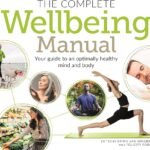Introduction

Practical Health: Easy Ways to Make Wellness a Daily Habit
Total fulfillment includes health and wellness as its important components. Our physical, emotional and mental well-being can be improved if we focus on our welfare. This all-inclusive guide provides some practical tips for incorporating health and wellness into your everyday life effectively.
Understanding Health And Wellness
Life has many aspects and health and wellness are parts of it that have distinctions. Emotional fitness, physical health, and mental well-being define an individual’s complete approach to personal wellness. Let us find out in this part how these attributes may be maintained or improved on.
Physical Wellness: Laying the Groundwork
Physical wellness is foundational to overall well-being and fitness. It involves taking good care of your body through exercise, dieting and sleep. Here are a few tidbits that will fortify physical wellness.
Regular Exercise: Aim at performing 150 minutes minimum of moderate intensity aerobic activity or 75 minutes weekly of vigorous intensity aerobic activity plus muscle-strengthening activities twice per week including walking, cycling swimming etc.
Balanced Diet: You must have a healthy eating plan in order to promote your own physical wellness. Whole foods like fruits, vegetables lean proteins and whole grains should be emphasized while processed foods as well as excessive sugar intake should be avoided; moreover other global nutritional supplements may be provided in support of this purpose.
Sufficient Sleep: Quality sleep is an important aspect for both health and overall wellness in general. It is recommended that you aim at getting between seven to nine hours of sleep every night regularly in order to achieve this goal all the time establish a routine so that your bedroom feels cool dark silent even when it isn’t dark outside.
Emotional Health: Cultivate Your Inner Self
Wellness involves psychological recuperation which is very crucially essential indeed amongst many indicators though this includes managing ones own feelings making relationships stronger by building resilience too. The following are guidelines towards nurturing emotional health:
Self Awareness: Know about your feelings and what triggers them. Reflect on yourself regularly and sometimes write things down in diary form if you want to keep track of how you feel or how those reactions go.
Stress Management:Long-term impacts on an individual’s health may also arise if stress is mishandled. Subsequently, exercises like profound breathing activities, yoga and care ought to be drilled by each individual as an approach to decreasing pressure. References.
Social Connections: Strong relationships are characterized by emotional support and a sense of belonging. Usually those individuals who have grown up with their closest relatives will appreciate more that they must have good moments together with children engaging in activities which may help them bond as siblings in future.
Mental Wellness: Nurturing Your Mind
Physical wellness has a close connection with mental wellness in addition to emotional health but this involves maintaining proper mental faculties through stimulation/reasoning, resilience (how one mentally handles stressful situations), and positive thinking. Here are some strategies for enhancing mental wellness:
Life-long Learning: Active engagement with reading materials like novels or learning new words or puzzles engages brain activity thereby improving cognitive skills every day.
Positive Thinking: By focusing on the good aspects of our lives and being thankful it helps one develop a positive mindset. It lowers anxiety levels thus promoting overall sound mental health too.
Mind-Body Practices: Bring mind-body practices like yoga, jujitsu or reflection into your regular daily schedule. They help soothe nerves thereby creating clarity in thought processes particularly during tense moments hence ease relaxation tension building up inside you every now then.
Integrating Wellness into Daily Life
To achieve optimal health, these habits need to become part of daily routines. These suggestions should be helpful in beginning:
Set Realistic Goals for Yourself: Establish realistic objectives related to any intended changes towards achieving improved general body fitness as well as wellbeing at large. Simple changes can be easier to start with before scaling up which would involve gradual shifts when trying to make lasting change in lifestyle habits.
Create a Routine: Good health and wellbeing require consistency. Develop everyday activities which include exercise, healthy meals, relaxation time and engagement in social activities.
Stay Informed: Keep up to date with current information on health and wellness. Listen to reliable sources of information, talk to healthcare providers or even join wellness programs or communities.
Listen to Your Body: Your body communicates all the time; pay attention to it. Rest when you are tired, eat when you are hungry, if necessary take medical advice from a physician.
Practice Self-Care: Allocate time for activities that give you joy and calmness. Emotional healthfulness requires self-care.
(FAQs)
Q1: How can I start a workout routine?
A: You could also increase the intensity gradually as your stamina increases. Or else get guidance from professional trainers.
Q2: What are some healthy diet tips?
A: Eat whole foods rather than processed ones. You should incorporate fruits and vegetables into your diet along with lean protein sources that will supply fats like omega-3 fatty acids in them as well as drinking enough water but not sugar-sweetened beverages including soda pop and cookies or cakes containing lots of sugar.
Q3: How can I improve my emotional health?
A: To be mindful about all mind-body connections does help keep both physical & mental well-being fit by building strong relationships relying on others for support we need doing more stuff we feel great about ourselves at times.
Q5: How can I maintain mental wellness?
A: Be mentally active by staying positive minded and keep on learning. You have to incorporate mind-body activities in your daily schedule while seeking help from professionals if necessary.
Q4: What are the benefits of a plant-based diet?
A: On top of being full of nutritious substances; fiber rich diets can help reduce risk factors related to cardiovascular diseases besides promoting healthier lives through lowering risks associated with chronic ailments across many populations its consumption has been linked improved hearts as well as general well being due antioxidants presence in these kinds particular foodstuffs among others efficient ways preventing illnesses overall fitness is increased by eating high nutrient content that low chemicals .
Q5: How can I maintain mental wellness?
A: Be mentally active by staying positive minded and keep on learning. You have to incorporate mind-body activities in your daily schedule while seeking help from professionals if necessary.
Conclusion:
Following these guidelines and incorporating health and wellness into your daily routines will enable you achieve a balanced life that is fulfilling. Remember, being healthy and well is a journey that requires commitment as well as mindfulness. Take baby steps; keep updated and put yourself first in everything you do.





